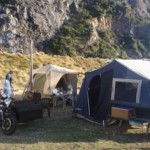

UN International Women’s Day Seminar – CEDAW 2015 March 8 was celebrated for the 5th year in State Parliament House Sydney on Monday 9th March this year with our Parliamentary sponsor – Minister for Health The Hon Jillian Skinner MP opening the Seminar immediately after Acknowledgement to Country by Indigenous speaker Robyn Carroll from Mulla Walla Family & Community Support at Woolloomooloo.
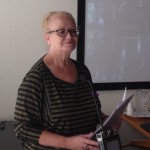
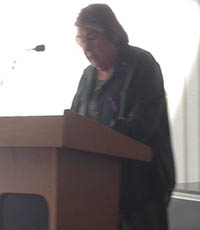
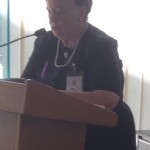
Pamela Lemoine UNAANSW member read out the message from UN Secretary General Ban Ki-moon to UNIWDay. Valerie Weeks, Co-Convenor of UNIWD and past President of co-sponsor of the event UNAANSW spoke on the History of Women in Australia.
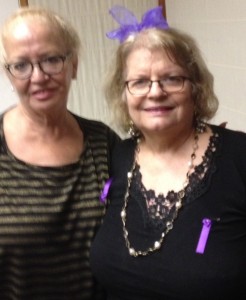
Sue Conde past President of UN Women Australia was to speak on the topic CEDAW Convention for Elimination of all Forms of Discrimination Against Women and the Committee for the Elimination of all Forms of Discrimination Against Women which was set up to monitor the progress of the Convention; but unfortunately had to attend a funeral so sent her paper which I spoke to as I was speaking about my experience with attending as one of 22 community representative the UN Conference/Forum for Women Peace and Development in Copenhagen in 1980 when CEDAW was launched to the world and Australia had signed the Convention during the Frasier government.
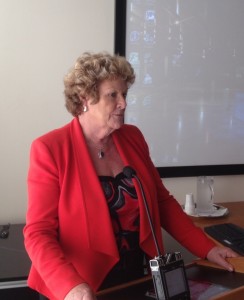
The same number of women government representatives had also been chosen by the Minister for Home and Women Affairs The Hon Bob Ellicott. Decades later we still have a lot to achieve. At that time in the Scandinavian Parliaments there were many women members. We still have women in countries such as USA and Australia not being paid the same as men for the same work! And murder, rape and verbal and physical abuse is still rampant throughout the world however, the Minister advised that the Baird government would ensure a Minister for Domestic Violence as the priority if they are re-instated, that is how serious the situation is.
Robyn Carroll spoke of the history of Walla Mulla Family and Community Support which was created by a nun and is now a vital service to the Indigenous community. Robyn also shared about her struggle in life and we were all so happy for her because she has been awarded the NSW Woman Award for Sydney 2015 in the NSW WOMEN AWARDS 2015 and we presented her with a box of congratulatory chocolates along with her bunch of flowers for being a speaker.
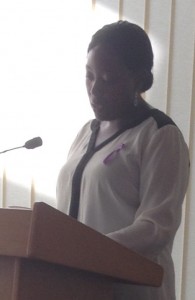
The next speaker was Margaret Conway from GLAPD – Great Lakes Agency for Peace and Development. Margaret spoke about the Great Lakes of Africa especially women from Uganda, Burundi, Rwanda and Congo.
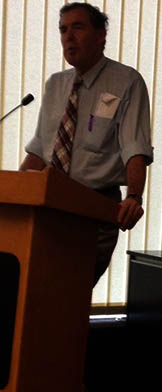
Buddhist Venerable Dr. Tich Minh Tam UNAANSW Committee member brought Professor Chris Hamer UNSW who spoke on the work of Women, Peace and Sustainability. It was rewarding to have full attendance in the Waratah Room and especially that we had for the first time a large contingent of men in the audience.
The Humanist Society of NSW has also been a co-Sponsor of the UNIWDAY for 5 years especially generous with covering costs and Ian Bryce the current President was invited to say a few words.
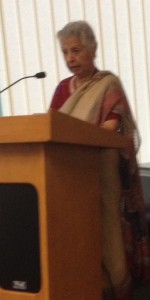
Mina Batra AM member of the UNAANSW Committee and responsible for the Interfaith Portfolio dressed in a beautiful sari thanked the speakers while Valerie Weeks handed out the final bouquet of pink roses to me not only as a speaker and Convenor/MC but also because the UNIWDAY coincides with my birthday on March 8th. So it was indeed a great day for me.
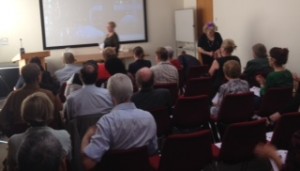
We thank State Parliament House for letting us have the Waratah Room for the venue gratis. We had beautiful croissants and tea and coffee with a platter of fruit and gluten free cupcakes for those who have sensitive stomachs but that was not gratis and that is why we needed to charge for the event.
 Many thanks to Fred Flatow HSNSW member who sat at the door collecting entry monies which covered the expenses of the afternoon tea. We are pleased to announce that serendipitously Fred won the lucky door prize which was a huge heart shaped pink frame for family photos which could be mounted on a wall which he loved and truly deserved!
Many thanks to Fred Flatow HSNSW member who sat at the door collecting entry monies which covered the expenses of the afternoon tea. We are pleased to announce that serendipitously Fred won the lucky door prize which was a huge heart shaped pink frame for family photos which could be mounted on a wall which he loved and truly deserved!
I would like to finish with mentioning 3 important points: There are two reasons I chose to convene the UNIWD for five years:
- To disseminate information about women’s issues
- I chose the venue to be State Parliament House Sydney to show that the community especially women have access to Parliament House and gratis.
- We have available printed copies of Valerie Weekes’ History of Women in Australia, and Sue Conde’s CEDAW History and the event has been taped and will be on YouTube soon – contact Dr. Affie Adagio <affie@affie.com.au> or 0421 101 163 or (02) 9690 1431 (h)
